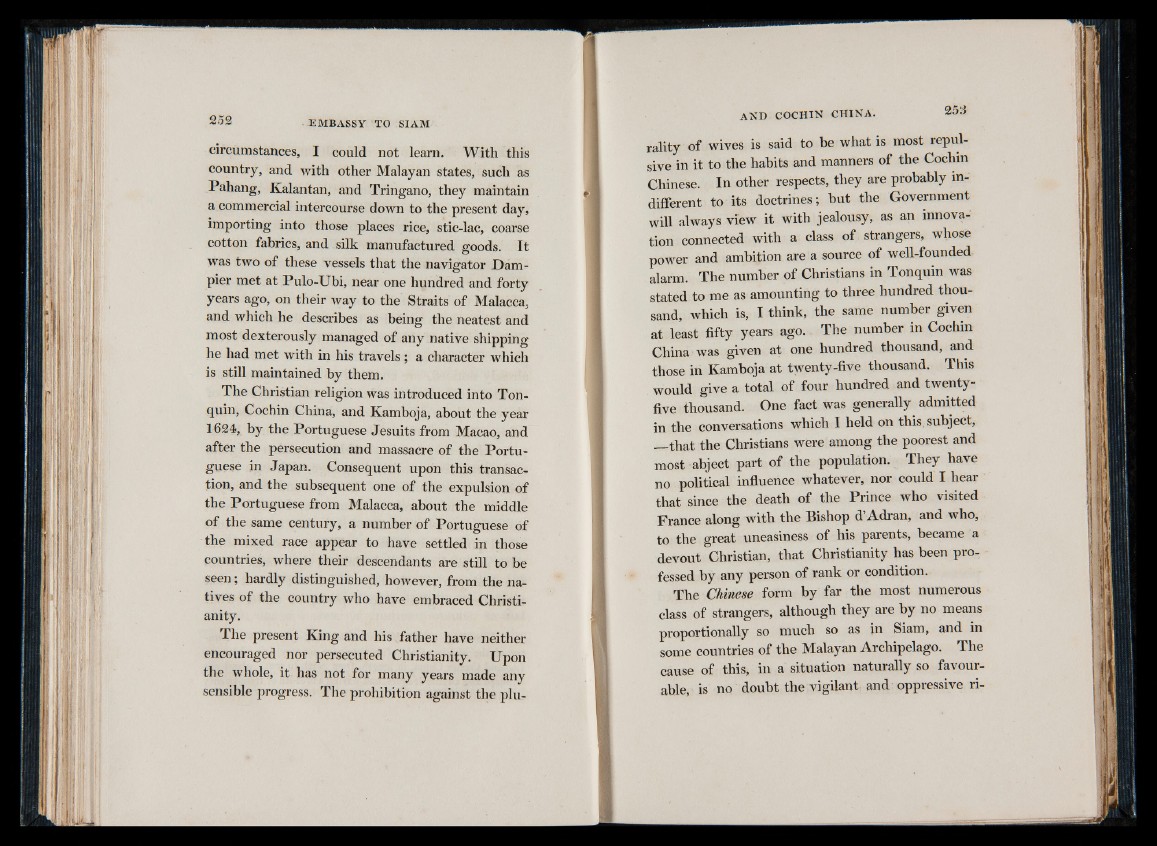
circumstances, I could not learn. With this
country, and with other Malayan states, such as
Pahang, Kalantan, and Tringano, they maintain
a commercial intercourse down to the present day,
importing into those places rice, stic-lac, coarse
cotton fabrics, and . silk manufactured goods. It
was two of these vessels that the navigator Dam-
pier met at Pulo-Ubi, near one hundred and forty
years ago, on their way to the Straits of Malacca,
and which he describes as being the neatest and
most dexterously managed of any native shipping
he had met with in his travels ; a character which
is still maintained by them.
The Christian religion was introduced into Ton-
quin, Cochin China, and Kamboja, about the year
1624, by the Portuguese Jesuits from Macao, and
after the persecution and massacre of the Portuguese
in Japan. Consequent upon this transaction,
and the subsequent one of the expulsion of
the Portuguese from Malacca, about the middle
of the same century, a number of Portuguese of
the mixed race appear to have settled in those
countries, where their descendants are still to be
seen ; hardly distinguished, however, from the natives
of the country who have embraced Christianity.
The present King and his father have neither
encouraged nor persecuted Christianity. Upon
the whole, it has not for many years made any
sensible progress. The prohibition against the plurality
of wives is said to be what is most repulsive
in it to the habits and manners of the Cochin
Chinese. In other respects, they are probably indifferent
to its doctrines; but the Government
will always view it with jealousy, as an innovation
connected with a class of strangers, whose
power and ambition are a source of well-founded
alarm. The number of Christians in Tonquin was
stated to me as amounting to three hundred thousand,
which is, I think, the same number given
at least fifty years ago. The number in Cochin
China was given at one hundred thousand, and
those in Kamboja at twenty-five thousand. This
would give a total of four hundred and twenty-
five thousand. One fact was generally admitted
in the conversations which I held on this, subject,
—that the Christians were among the poorest and
most abject part of the population. They have
no political influence whatever, nor could I hear
that since the death of the Prince who visited
France along with the Bishop d’ Adran, and who,
to the great uneasiness of his parents, became a
devout Christian, that Christianity has been professed
by any person of rank or condition.
The Chinese form by far the most numerous
class of strangers, although they are by no means
proportionally so much so as in Siam, and in
some countries of the Malayan Archipelago. The
cause of this, in a situation naturally so favourable,
is no doubt the vigilant and oppressive ri